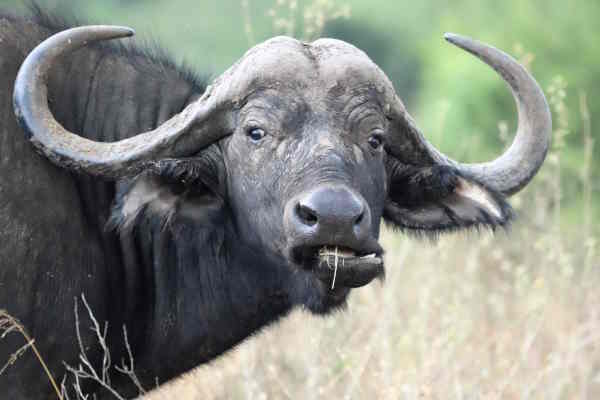Good news on A.I.
By Glen Beasley
Issues surrounding A.I. appear in news and current affairs programs on an almost daily basis – will artificial intelligence be a force for good, or will it eventually lead to the destruction of human kind? I guess we could ask the same question more broadly in regards to science, technology and capitalism – they all interrelate and feed off each other.
In my world – the world of a poor but honest farmer – A.I. stands for something completely different. Artificial Insemination is the means whereby important heritable characteristics in livestock – like weight for age, temperament etc. can be infused into a breeding herd quickly, efficiently, and on a much wider scale than would normally be possible. A.I. (artificial insemination) was one of many technological innovations appearing in a recent ABC TV Landline report entitled Laos Dairy. This report is, I think, a timely reminder of the force for good that science, technology and capitalism can be, at the most basic level.
Suzie Martin, a corporate executive specialising in leasing office space around the world, visited Laos to run a guest house for twelve months. Attempting to procure fresh dairy products for her guest house led Suzie to the discovery that there was no dairy industry in Laos ( only water buffalo, which did represent wealth to some villagers) but no dairy cattle.” Why can’t you milk the water buffalo?” she asked – only to be met with ridicule. Not to be deterred, Suzie recognised that in a country of extreme poverty like Laos ,where 35% of children suffer chronic malnutrition, a dairy industry had the potential to change lives.
Suzie’s experience in lease management led her to establish an innovative scheme whereby she leases a water buffalo from Laos families for a period of six months for the sum of $100 (equivalent to one months’ salary) On arrival at the newly established dairy, the buffalo is hosed down, quarantined, vaccinated, placed on a rising plane of nutrition, and (this is where A.I. comes in) artificially inseminated to superior genetics producing higher milk yield and higher meat production. The buffalo is then returned to the family disease free, and in calf (overcoming the pre-existing 50% infertility problem in the Laos buffalo population)thus providing the family with an ongoing income stream.
While using milking machines on site, Suzie’s Laos dairy teaches locals to hand milk the buffalo in their home village. Partnering with a Queensland lick block manufacturer, the scheme now provides the means of keeping the buffalo disease and parasite free, with provision to add drought ration supplementation, all through this self medicating process (a practice widely used in the Australian cattle industry)These lick blocks are now made locally by the villagers, who source local ingredients, and mixed in a giant machine provided by Queensland based company Ag Co Tech. The higher plane of nutrition results in 30% lower methane emissions from the buffalo thus providing Carbon Credits able to be traded on the international market .This means the lick blocks can be provided free to Cambodian families who own a buffalo.
This scheme can now be replicated across the country, bringing with it enormous benefits. Locals are trained in the manufacture of cheese, yoghurt and other dairy products blended with traditional dishes. Through superior genetics and nutrition, buffalo now produce 4-6 litres of milk per day, and higher carcase weights, all providing much needed protein and a revenue stream to an impoverished country. Levels of child nutrition and education have risen.
Some would argue that the Laos dairy is just another example of a wealthy western country meddling in the affairs of another country, trying to turn them into little capitalists just like ourselves. Others might argue that there is little human dignity in poverty, child malnutrition and poor educational opportunities.
Globally, the ever increasing challenge of food production and food security will be met not by returning to an over- romanticised view of a bygone era, but through science, technology and capitalism. These three “horsemen of the apocalypse” may in the future have us sourcing our food from microbial protein produced in a laboratory – thus rendering poor but honest farmers obsolete.
In our SOFiA conversations we have every right to be critical of the way science, technology and capitalism shapes our world. We should unpack the meaning of words like “progress” and the social and environmental consequences carried with it. Suzie Martin’s Laos dairy is but a tiny component in this whole debate but it serves as a timely reminder that science, technology and capitalism are not necessarily evil in themselves. Maybe the way we choose to use them is the issue.
Laos Dairy can be found online. It is an illustration of how Australian agricultural technology and innovation has produced a humanitarian outcome that will, I think, warm the cockles of your heart.
Disclaimer: views represented in SOFiA blog posts are entirely the view of the respective authors and in no way represent an official SOFiA position. They are intended to stimulate thought, rather than present a final word on any topic.
Photo by Henrik Hansen on Unsplash


